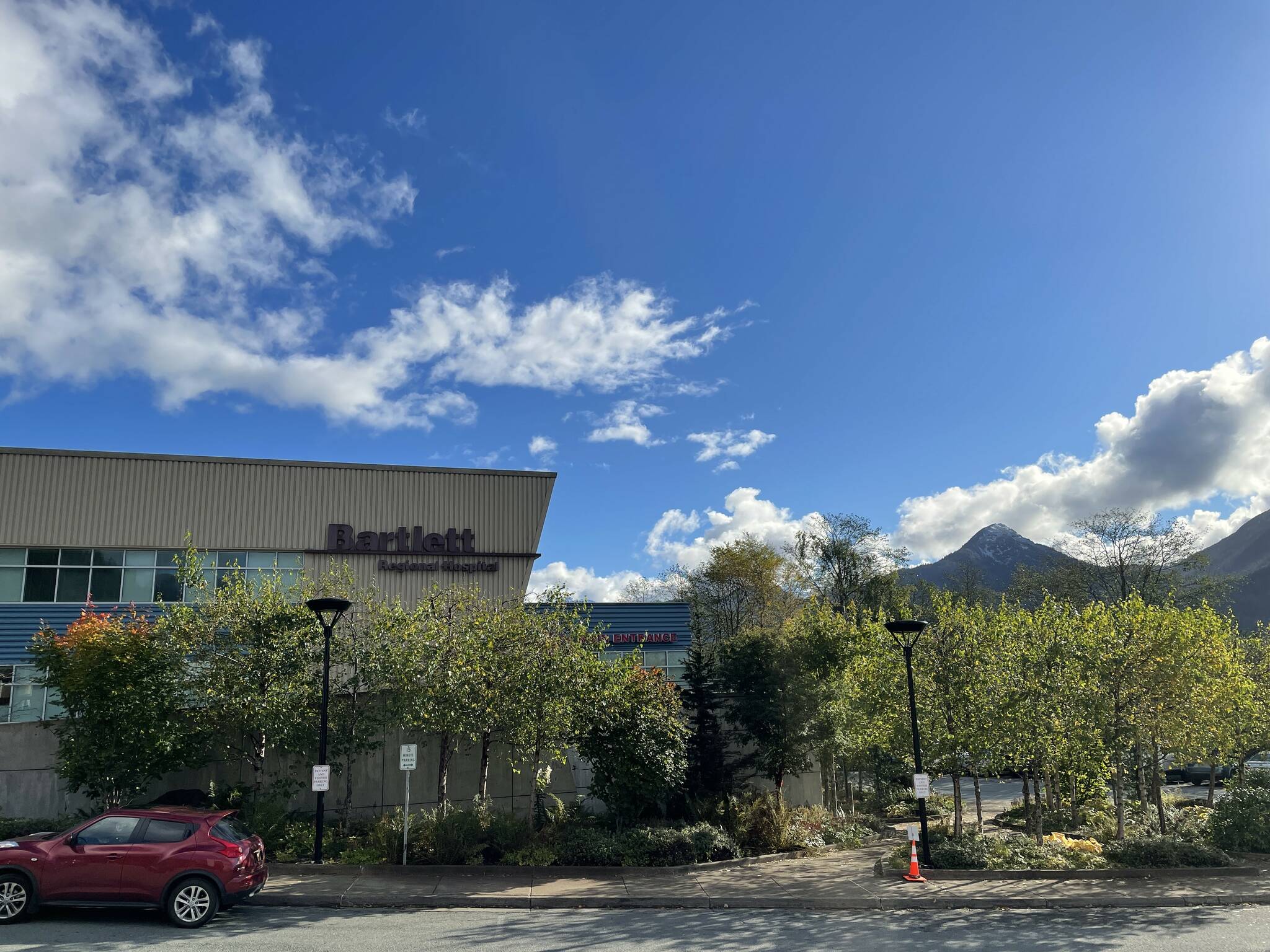As hospitals across the state move to crisis standards of care due to surging COVID-19 cases, local hospital officials say that Bartlett Regional Hospital is not at a crisis point.
“Don’t delay your care,” said Kim McDowell, Bartlett’s chief nursing officer, in a news release. “Rest assured we stand ready to care for you and serve the healthcare needs of our community.”
On Saturday, the Alaska Department of Health and Social Services activated crisis standards of care for 20 health care facilities, including Bartlett Regional Hospital. The move came at the request of the state’s 15-member volunteer Crisis Care Committee, DHSS said.
The committee made the decision because of a shortage of resources within some hospitals.
According to DHSS, crisis standards of care provide guidelines for providing health care and allocating scarce resources under “the extraordinary circumstances of a disaster or public health emergency.”
“Bartlett is nowhere near re-allocating care for our patients. If we reach a level where we prioritize care, the designation allows BRH to operate within the crisis standards of care framework,” hospital officials said in a news release issued late Sunday evening.
Transfer challenges
Shrinking regional capacity and the accompanying challenges transferring patients from rural communities to critical access hospitals was a factor in the committee’s decision.
“We know that our colleagues in Anchorage and Seattle are working extremely hard,” said McDowell in the release. “Transferring patients can add to already full hospitals. It is possible that a point may be reached where there is no room in traditional destinations for medevacs from Bartlett.”
Elective procedures
In recent weeks, several hospitals in Alaska have postponed elective surgeries as the state leads the nation in new COVID-19 infections.
At various times during the pandemic, Bartlett officials have paused elective procedures. Most recently, BRH resumed inpatient elective procedures on Sept. 20, and they continue despite the crisis designation.
“Outpatient elective surgeries continue uninterrupted and surgeries that may require a post-operative stay in the hospital are assessed daily,” said Vlad Toca, chief operating officer.
Local situation
Hospital officials say residents don’t need to postpone care, even as COVD-19 cases rise locally.
“We want to thank our community members for adhering to virus mitigation measures that work: limiting social contacts, wearing a mask when you are around people outside your bubble, and getting vaccinated. If our community continues its strong support of these efforts, I am hopeful we won’t have to be in the position to implement prioritization of care,” said Interim CEO Kathy Callahan.
Based on City and Borough of Juneau data, currently, 83.5% of Juneau’s eligible population has had the first dose of vaccine. Because children under 12 aren’t yet eligible to be vaccinated, that translates to 71.9% of Juneau’s population with at least one vaccine dose and 70.2% fully vaccinated.
Over the weekend, the city hosted vaccine clinics to distribute 1,300 booster shots to people who received the Pfizer vaccine at least six months ago.
Cases persist
Despite the high vaccination rate, Juneau’s case count continues to be high, compared to the levels seen since the pandemic was initially declared in March 2020.
Hospital officials said that as of Sunday, five people were in the hospital with the virus. In addition, recovered patients with lingering effects of COVID-19 continue to require care.
“While they’re no longer contagious, they’re still requiring a large amount of resources and specialty care,” McDowell said.
Monday afternoon, DHSS reported 49 new cases in Juneau that were identified between Oct. 2 and 4 — a count that’s become fairly typical over the last few weeks. According to the report, six people are now hospitalized with COVID-19 at BRH.
The current community risk level is “Level 3-High,” a level that calls for vaccinated and unvaccinated people to wear masks inside public places. In addition, capacity limits apply to many businesses, and bars and restaurants must close at 11:00 p.m.
Last week, the City Assembly unanimously voted to extend the current COVID-19 mitigation plans until March 1, 2022, rather than letting them expire on Oct. 31.
[City officials explain why COVID fines are back]
Relief staff
Hospital officials said five nurses arrived in Juneau as part of the federal Disaster Medical Assistance Team. The nurses are onboarding in Bartlett’s Medical-Surgical Unit.
Hospital officials expect additional staff to arrive later this week. Relief workers include operating room nurses, surgical techs and certified nurses assistants.
The reinforcements are part of about 500 workers sent to Alaska as the state leads the nation with the highest case rate.
• Contact reporter Dana Zigmund at dana.zigmund@juenauempire.com or 907-308-4891. Ben Hohenstatt contributed reporting to this story.

